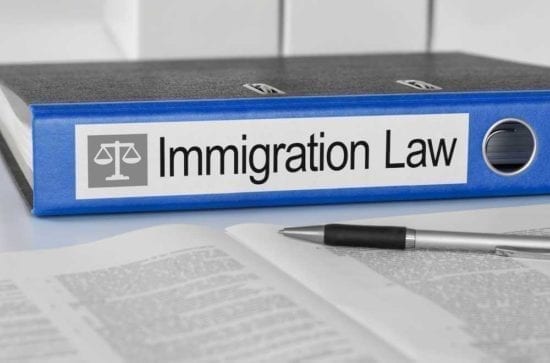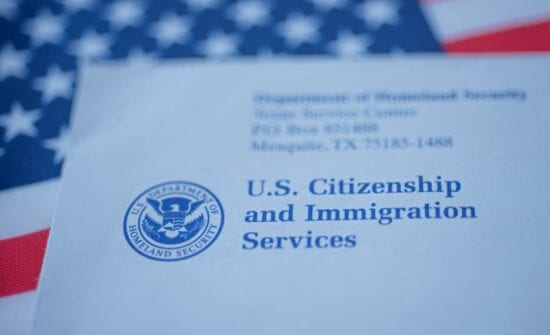Nouvo entèdiksyon vwayaj
Nan dat 4 Jen 2025, administrasyon Trump lan te anonse yon nouvo entèdiksyon vwayaj ki bloke oswa limite antre nan Etazini pou moun ki soti nan kèk peyi. Li pran efè 9 Jen 2025.
Gen de (2) tip restriksyon:
1. Entèdiksyon vwayaj konplè pou 12 peyi
Moun ki soti nan peyi sa yo pa gen dwa antre nan peyi Etazini sof si yo kalifye pou yon eksepsyon espesifik:
- Afganistan
- Burma
- Chad
- Repiblik Kongo
- Gine Ekwatoryal
- Eritre
- Ayiti
- Iran
- Libi
- Somali
- Soudan
- Yemèn
Eksepsyon yo (sa vle di ou ka toujou antre) gen ladan yo:
- Moun ki gen viza valab apati 9 jen 2025
- Moun ki gen Green Card (rezidan pèmanan legal)
- Doub resòtisan ki ap itilize yon paspò ki soti nan yon peyi ki pa sou lis la
- Kèk manm fanmi sitwayen Ameriken yo:
- Mari/madanm yo (IR-1/CR-1)
- Timoun yo (IR-2/CR-2)
- Paran yo (IR-5, si timoun sitwayen ameriken an gen plis pase 21)
- Viza adopsyon yo (IR-3, IR-4, IH-3, IH-4)
- Detantè SIV Afgan ak sèten SIV ki afilye ak gouvènman Ameriken an
- Moun ki nan azil, refijye, ak moun ki sou libète kondisyonèl
- Refijye Reyinifikasyon Familyal ak asilye derive (mari oswa madanm ak pitit moun yo akòde azil)
- Sèten moun ki gen viza diplomatik ak ofisyèl (A, G, NATO)
- Gen kèk minorite relijye oswa etnik ki soti nan Iran
- Atlèt ak anplwaye yo k ap patisipe nan gwo evènman entènasyonal enpòtan yo
Enpòtan:
- Si w soti nan youn nan 12 peyi sa yo epi w kite peyi Etazini, yo ka pa otorize w retounen. Menm si ou egzante de entèdiksyon an (pou egzanp, ou gen yon Green Card) ou ka fè fas ak pwoblèm lè w ap eseye re-antre nan peyi Etazini.
- Si w vwayaje nan youn nan peyi sa yo (menm si w pa soti la), ou ka fè fas ak depistaj siplemantè oswa pwoblèm pou retounen, espesyalman si w pa yon sitwayen Ameriken.
- Kalite viza ki enkli nan entèdiksyon an (sa vle di yo pa ka itilize pou antre) gen ladan yo:
- Viza F2A ak F2B (mari/madanm ak timoun moun ki gen Detantè Green Card)
- Ganyan Viza Divèsite (DV) yo
- Viza ki baze sou travay (H, L, O, elatriye)
- Viza etidyan ak vizitè (F, M, J, B)
2. Restriksyon pasyèl pou 7 peyi.
Gen kèk vwayajè ki soti nan peyi sa yo ka toujou antre nan Etazini, men sèten kalite viza yo gen restriksyon:
- Burundi
- Kiba
- Laos
- Syera Leòn
- Togo
- Tirkmenistan
- Venezyela
Restriksyon pasyèl vle di:
- Pa gen nouvo viza imigran (pou antre Ozetazini kòm yon rezidan pèmanan legal).
- Pa gen viza non-imigran nan kategori B, J, F, oswa M.
- Tan kalifikasyon viza pi kout pou lòt kategori ki pa imigran yo
- Tan depistaj ak pwosesis ki pi long
- Dokiman siplemantè oswa entèvyou
- Plis kesyon nan ayewopò oswa fwontyè a
- Moun ki posede Green Card ki soti nan peyi sa yo pa ta dwe afekte.
Restriksyon sa yo ap revize apre 90 ak 180 jou epi yo ka chanje. Toujou tcheke dènye règleman pou kalite viza w ak peyi a anvan w vwayaje.
Planifye vwayaj ou an sekirite
Gouvènman ameriken aktyèl la gen règleman imigrasyon ki pi estrik. Si ou pa yon sitwayen ameriken, li enpòtan pou w planifye vwayaj ou avèk anpil atansyon.
Deside si w ta dwe vwayaje
- Si ou pa yon sitwayen ameriken, tcheke avèk yon avoka imigrasyon anvan ou planifye vwayaj la. Yo ka ede ou konprann risk ki genyen yo, sitou si ou gen aplikasyon annatant oswa si ou soti nan yon peyi ki ta ka afekte pa entèdiksyon vwayaj la.
- Chak fwa ou re-antre nan peyi Etazini, yo ka revize sitiyasyon ou epi yo ka refize w re-antre. Règleman aktyèl yo trè strik.
- Si w pa gen papye, pa vwayaje entènasyonalman. Yo ka refize ou re-antre epi/oswa mete ou nan pwosedi pou depòtasyon.
- Si w gen yon aplikasyon imigrasyon ki annatant, vwayaj ka afekte dosye w la. Kite Etazini pandan aplikasyon w ap trete ka lakòz refi.
- Konsidere restriksyon sou entèdiksyon vwayaj yo.
Konsèy pou vwayaje an sekirite
- Asire w tout dokiman ou yo valid. Viza ou ak paspò ou dwe ajou epi pa dwe ekspire. Non ki sou tikè avyon ou a ta dwe matche ak ID ou.
- Fòk ou montre yon REAL ID oswa yon lòt fòm idantifikasyon ke yo aksepte, tankou yon paspò ki pa ekspire, si w ap vole anndan Etazini.
- Kenbe tout dokiman enpòtan avèk ou, pa nan malèt ou tcheke. Sa gen ladan dokiman vwayaj ou, paspò, ID, resi aplikasyon annatant, enfòmasyon kontak avoka ou, ak kontak ijans ou.
- Fè yon plan sekirite. Pataje detay vwayaj ou yo ak Kontak konfyans ou epi rete an kontak avèk yo pandan tout vwayaj la. Diskite sou sa pou w fè si yo refize w rantre nan peyi a oswa si yo kenbe w nan detansyon.
- Konnen dwa ou yo. Aprann kisa pou atann nan ayewopò a ak kijan pou reponn a ajan imigrasyon yo. Si ou kenbe nan detansyon, mande pou pale ak yon avoka imedyatman.
- Asire w ou suiv dènye nouvèl politik vwayaj anvan ak pandan vwayaj. Règleman imigrasyon yo ka chanje rapidman. Rete enfòme sou nouvo restriksyon vwayaj yo.
- Limite done pèsonèl sou aparèy ou yo.. Pwoteksyon Ladwàn ak Fwontyè Etazini (CBP) ka gade nan telefòn ou oswa laptòp ou pandan enspeksyon an. Konsidere retire aplikasyon oswa enfòmasyon pèsonèl ou pa bezwen pou vwayaj ou. Ou ka estoke dosye enpòtan nan yon kont nwaj ki sekirize oswa yon disk di ekstèn.
Kisa yon dokiman vwayaj?
Yon dokiman vwayaj fè gouvènman Ameriken an konnen plan vwayaj ou yo. Sa a se pou nenpòt moun ki pa yon sitwayen Ameriken men kiap viv nan Etazini. Ou ka itilize yon dokiman vwayaj olye pou yo yon viza kòm prèv otorizasyon vwayaj.
Ou dwe jwenn dokiman vwayaj ou anvan ou kite peyi a. Ou dwe montre dokiman vwayaj ou nan ayewopò oswa fwontyè a. Ou ap toujou bezwen paspò ou pou re-antre nan Etazini si w gen yon sèl.
Lè ou gen yon dokiman vwayaj, sa pa garanti ou ka re-antre Etazini. Customs and Border Patrol (CBP) ap verifye dokiman w yo epi deside si ou ka re-antre nan Etazini legalman.
Ki moun ki bezwen yon dokiman vwayaj?
Ou dwe gen yon dokiman vwayaj pou re-antre etazini si w gen estati a:
- refijye oswa moun ki mande azil
- Pwogram imanitè liberasyon kondisyonèl
- TPS oswa DED
- Aplikasyon pou TPS oswa Green Card ki anatant
- Rezidan legal pèmanan epi yo pral andeyò Etazini pou 1 ane oswa plis
- DACA oswa lòt estati tanporè epi yo gen yon rezon valab pou vwayaj
Poukisa mwen bezwen yon dokiman vwayaj?
Si ou kite Etazini san yon dokiman vwayaj, ou pral riske:
- Pèdi estati imigrasyon ou a
- Yo refize nenpòt aplikasyon annatant
- Pa gen dwa tounen nan Etazini
Si yon ofisye CBP di ou pa gen dwa re-antre nan Etazini, ou ta oblije ale nan tribinal imigrasyon. Si w pa kalifye pou lòt soulajman imigrasyon, yo ka depòte w de Etazini.
Li enpòtan pou verifye avèk yon reprezantan legal imigrasyon anvan w vwayaje, espesyalman si w gen yon aplikasyon annatant. Menm ak yon dokiman vwayaj, nenpòt vwayaj andeyò Etazini ka mete aplikasyon ou an an danje.
Ki tip dokiman vwayaj yo?
Gen 5 kalite dokiman vwayaj:
- Dokiman liberasyon kondisyonèl antisipe
- Dokiman vwayaj refijye
- Pèmi pou re-antre
- TPS otorizasyon vwayaj
- Dokimantasyon Transpotè
Kalite dokiman vwayaj ou bezwen depann de estati imigrasyon aktyèl ou. Pwosesis aplikasyon an se menm bagay la pou tout 5 kalite dokiman vwayaj.
Diferan dokiman vwayaj yo gen dat ekspirasyon diferan. Asire w ke dokiman vwayaj ou a valab e pap ekspire lè w retounen nan Etazini. Li enpòtan pou w konnen ki lè dokiman vwayaj ou a ekspire.
Dokiman liberasyon kondisyonèl antisipe
Liberasyon kondisyonel antisipe pèmèt ou retoune Etazini san w pa aplike pou yon viza. Ou kapab aplike pou yon dokiman librasyon kondisyonèl antisipe si w gen yon:
- Demann Green Card an atant
- Aplikasyon demand azil annatant
- Demann TPS anatant
| Li enpòtan pou sonje ke si w kite peyi a pandan ke aplikasyon ou a annatandan, ou ta ka rate avi enpòtan oswa demann pou enfòmasyon. Si w pa reponn a demann USCIS pandan w aletranje, yo ka refize aplikasyon w lan. |
Dokiman vwayaj refijye
Yon dokiman vwayaj refijye pèmèt ou retounen nan peyi Etazini si ou se yon:
- refijye oswa moun ki mande azil
- Yon moun ki gen stati yon moun ki gen azil oswa refijye
- Ki gen yon Green Card ki baze sou estati refijye oswa moun ki mande azil
Dokiman vwayaj refijye yo valab pou 1 lane.
Pèmi pou re-antre
Yon pèmi re-antre se pou moun ki vwayaje andeyò Etazini a pou plis pase 1 lane. Li pèmèt ou retounen nan Etazini san yo pa aplike pou yon viza retounen sòti nan yon anbasad Ameriken oswa konsila.
Ou ka aplike pou yon pèmi re-antre si w se yon:
- Rezidan pèmanan
- Rezidan kondisyonèl
Si w lwen Etazini a pou mwens pase 1 lane, ou pral sèlman bezwen montre Green Card ou lè w retounen.
TPS otorizasyon vwayaj
Si w gen TPS, ou dwe aplike pou otorizasyon vwayaj pou vwayaje andeyò Etazini. Si demann ou apwouve, USCIS ap ba ou Fòm I-512T pou montre ou gen pèmisyon pou vwayaje. Ou ka itilize dokiman vwayaj TPS ou kòm prèv vwayaj nan yon ayewopò olye de yon viza.
Si aplikasyon w pou TPS annatant epi ou planifye pou vwayaje aletranje, ou dwe aplike pouliberasyon kondisyonèl avanse Si sa apwouve, ou pral resevwa Fòm I-512L kòm prèv pou vwayaj.
Dokimantasyon Transpotè
Dokimantasyon konpayi asirans pèmèt konpayi avyon oswa transpòtè kite w monte nan yon avyon oswa lòt transpòtasyon transpòtè pou vwayaje tounen nan Etazini Sa a se yon aplikasyon separe de Fòm I-131A.
Ou ka aplike pou dokiman transpò si:
- Green Card, libète pwovizwa alavans, oswa pèmi re-antre ou te pèdi, vòlè, oswa detwi
- Ou se yon rezidan pèmanan oswa yon rezidan kondisyonèl
Kouman mwen ka aplike?
Pwosesis pou aplike pou yon dokiman vwayaj se jeneralman menm bagay la tou pou tout 5 kalite dokiman vwayaj yo. Ou ka aplike pou yon dokiman vwayaj ak USCIS nan ranpli Fòm I-131, Aplikasyon pou Dokiman Vwayaj. Ou ka presize ki kalite dokiman vwayaj ou mande nan Pati 2 nan fòm lan.
Li enstriksyon yo pou Fòm I-131 pou plis enfòmasyon sou ranpli li sòti. Ou dwe soumèt prèv tankou idantifikasyon foto w ak prèv sitiyasyon ou ak imigrasyon.
Ou ka ranpli aplikasyon w sou entènèt oswa voel pa lapòs nan yon adrès depo dirèk depandamman de estati imigrasyon w la. Jwenn konsèy pou depoze yon fòm sou entènèt.
| Ou dwe aplike pou yon dokiman vwayaj anvan ou kite Etazini yo. Asire w ke ou verifye dele tretman yo plizye fwa anvan w planifye vwayaj. W ap bezwen dokiman vwayaj ou pou re-antre nan Etazini. |
Kisa k ap pase aprè mwen depoze aplikasyon mwen an?
Ou pral jwenn yon avi nan lapòs la yon fwa yo aksepte aplikasyon w lan. USCIS ka mande plis enfòmasyon oswa prèv. Ou ka oblije ale nan yon randevou sèvis byometrik ak entèvyou.
Kouman mwen ka swiv sitiyasyon dosye mwen an?
Ou dwe ranpli Fòm G-1145 pou resevwa yon resi konfimasyon sou imèl oswa mesaj tèks. Ou verifye estati ka w la sou entènèt lè w antre nimewo resi w la.
Konbyen tan sa pran pou jwenn dokiman vwayaj mwen an?
Dele tretman dosye yo depan de kote w ye a ak tip demand ou a. Ou ka verifye dele tretman dosye sou entènèt.
Aprè w fin aplike, ou ka wè tan an tan yo estime pou dosye w la lè w konekte nan kont MyUSCIS ou a.
Èske mwen ka akselere dokiman vwayaj mwen an?
Si w gen yon rezon ijan ki fè w bezwen vwayaje, ou ka mande akselere (pi vit) pwosesis aplikasyon ou an. Ou ka mande pou pwosesis akselere a lè ou rele nan USCIS Contact Center.
Pwosesis akselere kapab disponib pou rezon sa yo:
- Ijans tankou bezwen medikal, maladi grav, oswa lanmò yon fanmi pwòch
- sitiyasyon imanitè
- Pèt finansye grav
- Aktivite ijan ki pa gen pou ojektif fe lajan.
- Enterè gouvènman Ameriken yo
- Efase erè USCIS
Tout demann tretman rapid yo fèt ka pa ka. Ou ka oblije soumèt plis prèv. Si w kite peyi a anvan ou gen apwobasyon, yo pa otorizew u retounen.
Èske mwen ta dwe pale ak yon avoka?
Li enpòtan pou jwenn èd legal lè w aplike pou yon dokiman vwayaj, espesyalman si w gen yon aplikasyon pou imigrasyon ki an kou Yon avoka oswa yon reprezantan ki akredite ka eksplike opsyon w yo epi ede w soumèt aplikasyon w lan Anpil òganizasyon ak avoka ofri sèvis legal gratis oswa a bon mache.

Aprann kijan pou jwenn èd gratis oswa bon mache nan men avoka imigrasyon ak reprezantan legal de konfyans.
Enfòmasyon ki nan paj sa a vini de USCIS ak lòt sous nou ka fè konfyans. Objektif nou se pou ofri enfòmasyon ki fasil pou konprann epi yo mete yo ajou regilyèman. Enfòmasyon sa yo pa konsèy jiridik.




